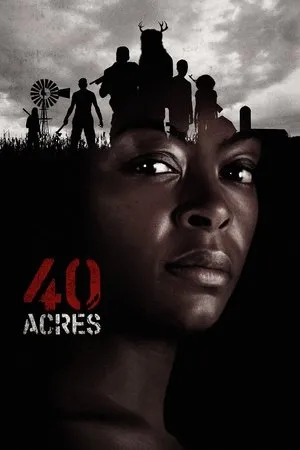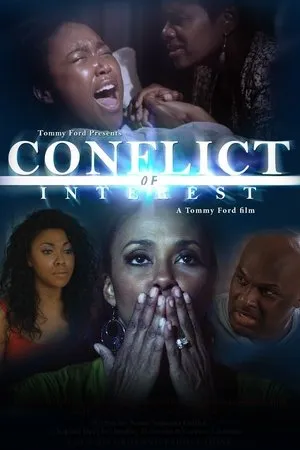In the landscape of contemporary cinema, where dystopian narratives and stories of resilience often dominate, “40 Acres (2025)” emerges as a compelling addition. Set in a near-future Canada ravaged by famine, the film tells the story of Hailey Freeman and her family, the last descendants of African American farmers who settled in the region after the Civil War. Their struggle to protect their ancestral farm against a vicious militia hell-bent on seizing their land forms the crux of this gripping tale. The premise of “40 Acres” is both timely and resonant, tapping into current anxieties about environmental degradation, resource scarcity, and social unrest. The film paints a bleak picture of a world where the basic necessities of life are dwindling, and where the law of the jungle prevails. In this context, the Freeman family’s fight for survival becomes a microcosm of larger societal struggles. The historical backdrop of the story adds another layer of depth and complexity. The fact that the Freemans are descendants of African American farmers who sought refuge in Canada after the Civil War speaks to the enduring legacy of slavery and racial discrimination in North America. Their connection to the land is not just economic but also deeply cultural and spiritual. The farm represents their heritage, their identity, and their connection to their ancestors. The film explores the themes of family, community, and the importance of preserving one’s roots in the face of adversity. The Freemans are not just fighting for themselves; they are fighting for their children, their grandchildren, and all those who came before them. Their determination to hold onto their land is a testament to the human spirit’s capacity for resilience and hope. The militia that threatens the Freemans represents the forces of greed, oppression, and violence that seek to exploit and dispossess vulnerable communities. They are driven by a desire for power and control, and they are willing to stop at nothing to achieve their goals. The film does not shy away from depicting the brutality and inhumanity of these characters, but it also offers glimpses of their motivations and vulnerabilities. This adds a layer of nuance to the narrative and prevents the film from falling into simplistic good-versus-evil tropes. The setting of “40 Acres” in rural Canada is also significant. Canada is often portrayed as a haven of peace and stability, but the film challenges this image by depicting a society on the brink of collapse. The vast, open spaces of the Canadian countryside become a battleground for survival, and the Freemans must use all their skills and resources to defend their farm. The film’s visual style is likely to be gritty and realistic, reflecting the harshness of the environment and the desperation of the characters. The cinematography will likely emphasize the contrast between the beauty of the natural landscape and the ugliness of human conflict. The performances of the actors will be crucial to the success of the film. Hailey Freeman, as the protagonist, must embody both strength and vulnerability, conveying the character’s determination to protect her family while also grappling with her own fears and doubts. The supporting cast must also be believable and compelling, bringing depth and nuance to their respective roles. “40 Acres” has the potential to be a powerful and thought-provoking film that resonates with audiences on multiple levels. It is a story about survival, resilience, and the importance of family and community. It is also a commentary on the social and environmental challenges facing our world today. By exploring these themes in a compelling and engaging way, the film can inspire viewers to reflect on their own values and priorities and to take action to create a more just and sustainable future. The film’s title, “40 Acres,” is also significant. It refers to the promise made to newly freed slaves after the Civil War that they would receive 40 acres of land and a mule. This promise was never fully fulfilled, and the Freemans’ struggle to hold onto their farm can be seen as a continuation of this historical injustice. The film thus serves as a reminder of the ongoing struggle for racial equality and economic justice in North America. In conclusion, “40 Acres (2025)” is a film with a timely and important message. It is a story about survival, resilience, and the importance of family and community. It is also a commentary on the social and environmental challenges facing our world today. With its compelling narrative, strong characters, and thought-provoking themes, the film has the potential to be a major success. The film will be available on Welovecinema.top.

40 Acres (2025)
In a near-future ravaged by famine, Hailey Freeman and her family, the last of a line of African American farmers who settled in rural Canada post-Civil War, face a desperate battle. They must defend their ancestral farm against a ruthless militia determined to seize their land. This gripping narrative explores themes of resilience, heritage, and the fight for survival against overwhelming odds. The film depicts a family's unwavering commitment to protecting their legacy in a world where resources are scarce and violence is rampant.











